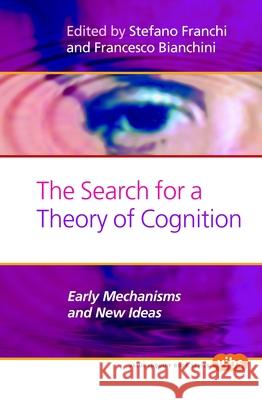The Search for a Theory of Cognition : Early Mechanisms and New Ideas » książka
The Search for a Theory of Cognition : Early Mechanisms and New Ideas
ISBN-13: 9789042034273 / Angielski / Twarda / 2011 / 375 str.
The book brings into relief the variety of approaches and disciplines that have informed the quest for a theory of cognition. The center of interest are the historical, geographical, and theoretical peripheries of classic AI's mainstream research program. The twelve chapters bring back into focus the variety of strategies and theoretical questions that researchers explored while working toward a scientific theory of cognition and pre-cognition. The volume is organized in four parts, each one including three essays. The first one deals with cybernetics, the approach that may be considered as the most important periphery of classic AI research. The second part focuses on the geographical periphery of AI research. It examines how the theories and techniques developed on AI's home ground were translated into countries with different cultures and traditions: Italy, France, and the Soviet Union. The third part focuses on AI's periphery understood in the cultural and historical meaning of the term. It contains essays that locate some of the central concepts of AI, like representation and computability, within a broader philosophical (Descartes, Aristotle, Leibniz) and technical background (programming theory and practice). The fourth and final part of the volume is focused directly on the limitation of Turing's classic computability theory and its possible alternatives, some of which were studied in the early years of AI's research (e.g. Ashby's re-entrant information model), while others have been intensely studied in recent times (quantum automata).











